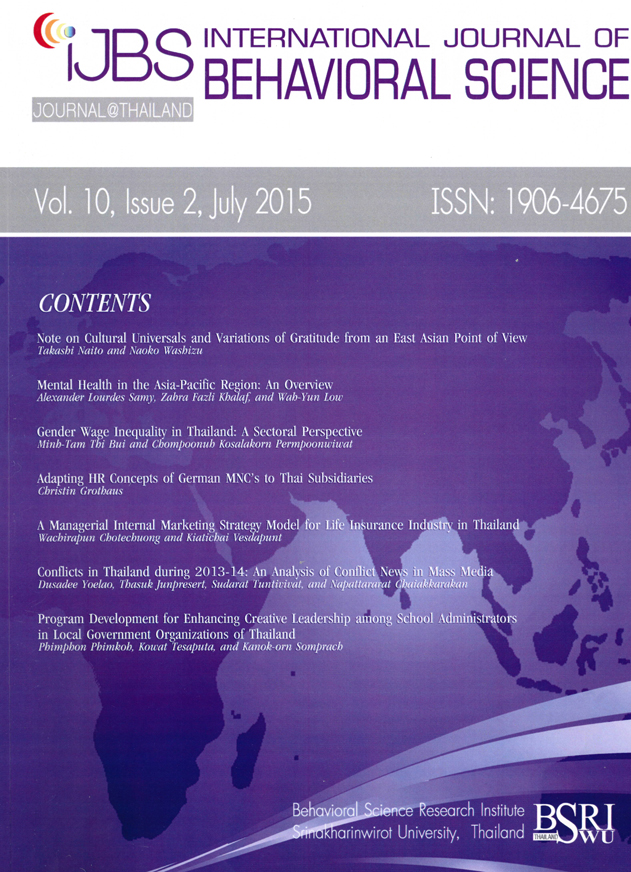A Managerial Internal Marketing Strategy Model for Life Insurance Industry in Thailand
Main Article Content
Abstract
The objective of this quantitative research was to identify an internal marketing strategy model for managers in the life insurance industry in Thailand. In-depth interviews with senior life insurance executives were conducted to survey factors in successful life insurance companies. A questionnaire was developed for use as a research instrument, and was tested and qualified for content validity and reliability. The sample was composed of 495 life insurance agents of three most successful life insurance companies in Thailand, selected by proportionate stratified random sampling. Data were analyzed using descriptive analysis, confirmatory factor analysis, path analysis and structural equation modeling. The results confirmed that the structural equation model was consistent with the empirical data with all goodness of fit indices satisfying the required criteria: GFI=.971, AGFI=.950, Chi-square/df=1.193, P-value=.072 and RMSEA=.020. The findings revealed that leadership behaviors and internal marketing factors jointly predicted 56% of agents’ organizational commitment. Internal marketing had significant positive direct impact on agents’ organizational commitment, enhanced positive impact of relation-oriented behaviors and positively mediated negative impact of task-oriented behaviors on agents’ organizational commitment. Committed life insurance agents will provide better services and stay long term with the company.
Keywords: task-oriented leadership behavior, relation-oriented leadership behavior, internal marketing, organizational commitment, life insurance agents


